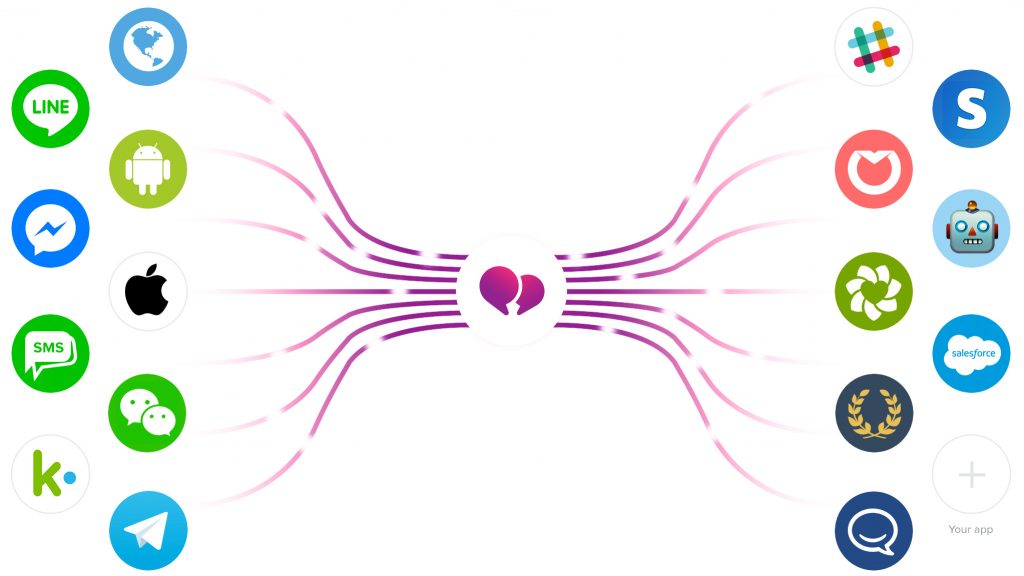Given the choice, would you rather call a company when you have questions, or simply send them a message? That’s what Montreal-based Smooch co-founders asked themselves when they first came up with the concept in 2014.
Originally a side project developed by Mike Gozzo and a few others while he was still at Radialpoint, the startup gained a life of its own when Radialpoint was acquired by AppDirect in November 2015. Gozzo and his team had already seen significant traction for the product they were building, so Smooch spun out as a standalone business, taking the creators and a number of team members with it.
With the rise of instant messaging — especially among younger generations – people are no longer willing to wait on hold on the phone or for a response via email. What Gozzo and his team wanted to figure out was how they could make it easier for users to get customer support within an app.
Smooch does that by giving customers the ability to communicate with businesses through any messaging platform they choose — whether it’s on the company website, in an app, by SMS, or through Whatsapp, Facebook Messenger, WeChat, or Kik.
“We had all kinds of evidence that consumers like to message,” said Smooch co-founder and CEO Hamnett Hill. “And we saw pretty quickly that businesses and consumers wanted to do a lot more than support. And they wanted to do it in a lot more places than just in the app.”
The Smooch platform does more than funnel messages from one party to another. All interactions are stored in the Smooch Conversation Cloud, along with the associated metadata: information about where the client was messaging from (website, app, Facebook), as well as their location if they were using the app on their phone.

“What we’re trying to do is make the interaction between a consumer and a business more like a human conversation, where today it’s much more transactional and really disjointed,” said Hill.
Customers certainly aren’t the only ones who benefit from the platform. Businesses who allow customers to communicate with them through messaging — whether on social media or through messaging apps — are 53 percent more likely to get new business. Agents can also carry out multiple conversations simultaneously, whereas speaking on the phone and communicating through live-chat are synchronous tasks, and crafting an email is time consuming.
Also, as the messages and metadata are stored in the cloud, multiple agents can access and continue conversations through their preferred CRM or messaging channel, be it Slack, Zendesk, Salesforce, or a host of others.
“We abstract away the complexity for the business of having to manage all of those channels. We make sure that the conversation gets to you wherever you want,” said Hill.
Smooch announced in early August that they had raised $10 million CAD in seed funding, which will enable them to move ahead with their plans to change the way businesses interact with their customers. The funding round was co-led by iNovia Capital and Real Ventures with participation from TA Associates and the startup’s founders.
Smooch will use their funding to build out their teams, both in Silicon Valley and Montreal.
As messaging has become more ubiquitous, there is little doubt that consumers and businesses will adopt this kind of product.
“Once businesses get a taste of it, they’re hooked,” said Hill. “Their customers like it and it’s better for them.”


